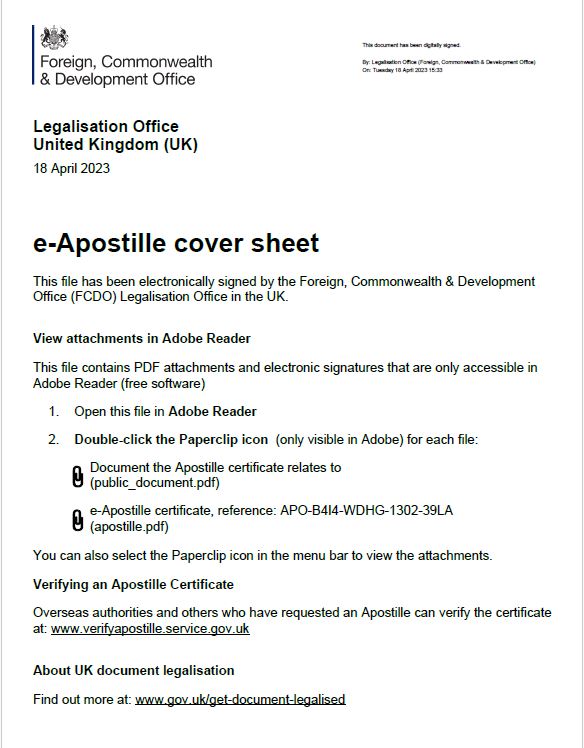E-Apostille
Table of Contents
What is E-Apostille or Digital Apostille?
An e-apostille or digital apostille is a modern solution to the traditional paper Hague apostille that verifies the authenticity of a document. Rather than a physical certificate attached to a document, an e-apostille is an electronic certificate that is attached to the digital version of a document.
Digital apostilles are gaining popularity as more countries shift to digital systems for record keeping and authentication. With digital apostilles, the process of verifying the authenticity of a document is faster and more convenient, as it can be done entirely online without the need for physical documents.
How Does E-Apostille Work?
The process of obtaining an e-apostille is similar to that of a traditional apostille. The document is first authenticated by a UK notary public or solicitor by digitally signing the document using Advanced Electronic Signature (AES) or Qualified Electronic Signature (QES). Once the document has been verified, it can then be sent to the FCDO for the e-apostille.
The e-apostille certificate contains information about the notary public or solicitor, including their name, signature, and seal. It also contains a unique identification number that links the certificate to the specific document it is attached to.
The e-apostille certificate is then uploaded to a secure online database maintained by the relevant government agency. The database can be accessed by authorities in the country where the document will be used to verify the authenticity of the e-apostille and the document it is attached to.
Benefits of E-Apostille
There are several benefits to using an e-apostille or digital apostille over a traditional paper apostille:
- Faster and more convenient: With e-apostilles, the entire process of verifying the authenticity of a document can be done online, without the need for physical documents or in-person visits to government offices.
- Improved security: E-apostilles are more secure than traditional paper apostilles, as they are encrypted and stored in a secure online database. This reduces the risk of fraud and document tampering.
- Cost-effective: E-apostilles are often less expensive than traditional paper apostilles, as they do not require the printing and postage costs associated with physical documents.
- Environmentally friendly: Digital apostilles help to reduce paper waste, making them a more sustainable option for document authentication.
The government has advised that the following documents cannot be issued with an e-apostille.
- Birth certificates
- Marriage certificates
- Civil ceremony certificates
- Death certificates
- ACRO, NPCC – Police checks
- DBS or other disclosures

